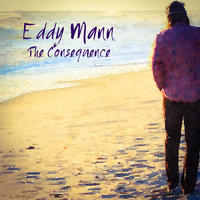The 45-year-old public relations consultant had become obsessed with work, driving herself to toil long hours at the expense of her social life—all to make everyone else happy. But Herrod herself was miserable. Her family had recently relocated to Boston from the West Palm Beach area, where Herrod remained; she felt lonely and isolated. She was exhausted and rundown. "No matter how hard I worked, nothing ever seemed good enough," Herrod recalls.
Until she started seeing Laverna Cullom, a social worker who delivers therapy with a Christian frame of reference, openly discussing God and the Bible. "I wanted to see someone who would understand that I believe in the power of prayer and that I feel the presence of the Holy Spirit in me," Herrod explains. "And who wouldn't think I was crazy or insane if I told her so." Not only could Cullom understand Herrod's worldview, she also provided scriptural guidance. She showed Herrod how misreading the Bible may have led to her unhappiness. Where Herrod had sought to "turn the other cheek," Cullom counseled that "Jesus was no pushover." Now, after two years of weekly sessions, Herrod is amazed by the new balance in her life and by how much happier she is. "I'm excited about the future now," she says.
Faith-based counselors vary in amount of religious training and psychological expertise. They differ in how much religion they incorporate into their practices and in the populations they serve. Some aim to holistically integrate mind, body and spirit for people of all faiths. Others seek to apply Scripture rather than social science to the resolution of human problems. But all of them, and especially the burgeoning evangelicals, reflect a growing divide in America. According to Harold Koenig, co-director of the Center for Spirituality, Theology and Health at Duke University in Durham, North Carolina, "They're turning away from mainstream cultural institutions to create their own therapeutic solutions to the stresses of modern living."
Read more









































0 Comentarios